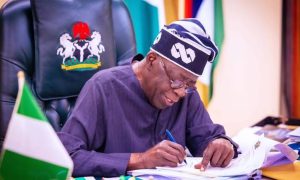
The political storm within the Peoples Democratic Party (PDP) in Ekiti State deepened on Friday as party chieftain and Caretaker Committee Chairman, Dare Adeleke, faulted a High Court judgment that voided the PDP’s May 2025 Local Government Congress, while upholding the controversial Ward Congress of 15 March.
In a blistering statement, Adeleke dismissed the ruling as “flawed” and “jurisdictionally unsound,” accusing unnamed party figures, pointedly linking them to former governor Ayo Fayose, of striking clandestine deals with the ruling All Progressives Congress (APC).
“It is common knowledge that some individuals are negotiating with the APC. As you all know, that is Ayo Fayose’s trait, but I assure you their plans will fail,” Adeleke charged.
He alleged that the High Court in Ado Ekiti had acted prematurely, deciding the matter at the preliminary objection stage, and revealed that an appeal and a petition to the National Judicial Council (NJC) had already been filed against the presiding judge:
“We rely on the Supreme Court judgment which emphasized that no court should interfere with party affairs.
Justice Omotosho is collaborating with Fayose, Funsho Ayeni their Abuja coordinator”, he accused.
The judgement has intensified factional tensions in the Ekiti PDP, where Adeleke has been at the forefront of calls for Fayose’s expulsion over what he terms “serial anti-party offences.” Fayose, a two-time governor and one of the PDP’s most recognisable figures in the South-West, has in recent months cultivated an unusually warm relationship with the state’s APC governor and publicly endorsed President Bola Ahmed Tinubu.
Party insiders say this latest court ruling could tilt internal power dynamics in Fayose’s favour, which translates to – in favour of the APC, particularly as his loyalists control many ward structures, structures that the court has now effectively legitimised.
The PDP’s National Working Committee now faces a high-stakes decision: move decisively against Fayose and risk deepening internal fractures in Ekiti, or tolerate his overtures to the APC and potentially alienate grassroots members already distrustful of the national leadership’s resolve.
For Adeleke, injustice shouldn’t be allowed. His directive for local government executives and ward leaders to “continue with their duties” signals a bold move to counter those he sees as enemies of the party, in the state.
Whether the PDP hierarchy will back Adeleke’s hard-line stance for fairness, or will continue to be blindsided by Fayose’s arrogance, will determine not just the party’s future in the next governorship election and other elections in Ekiti, but its credibility in the South-West ahead of the next election cycle.



